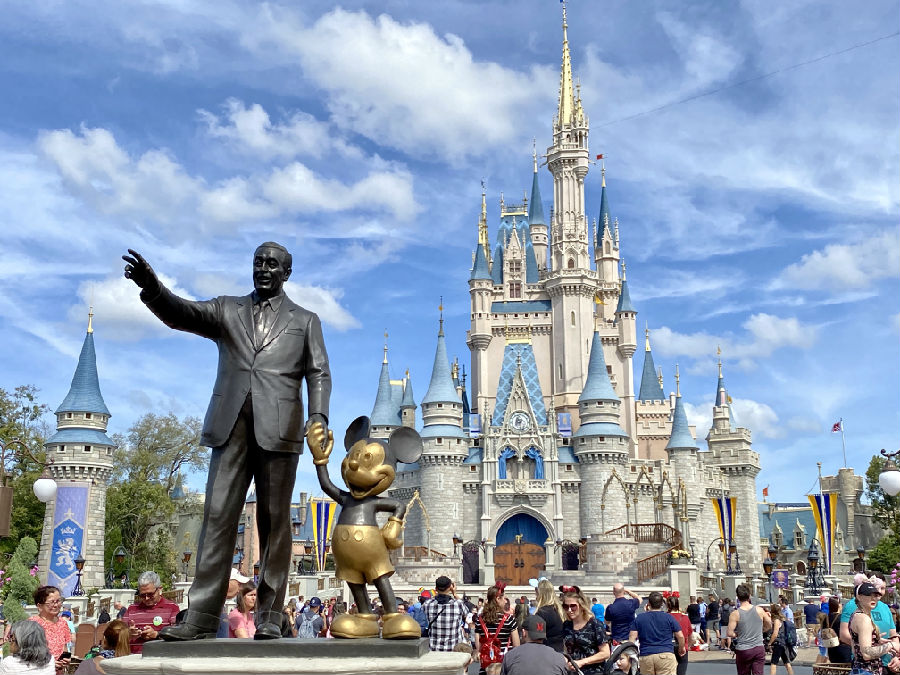The fact that theme parks and bowling alleys have been conspicuous victims of the economic shutdown has underscored how popular they remain. Disney World’s winning struggle to reopen in plague-ridden Florida this month was a major economic event. Fast food, another 1950s signature, is similarly pre-eminent, and the coronavirus has re-emphasised its most iconic form, the hamburger served to the car-window. McDonald’s, America’s favourite restaurant now as then, collected 70% of its revenues from drive-thrus even before the pandemic made them more popular.
主題公園和保齡球館一直是經濟衰退的明顯受害者,這一事實凸顯了它們仍然很受歡迎。本月,迪士尼世界在疫情肆虐的佛羅里達州重新開放,這是一個重大的經濟事件。快餐是另一個20世紀50年代的標志,而冠狀病毒再次強調了快餐具有標志性的形式,即車窗上的漢堡。麥當勞是美國最受歡迎的餐廳,疫情使它更受歡迎,而在這之前,其70%的收入都來自于外賣車道。

Pent up in suburbia, where a third of Americans lived in 1960 and over half live today, families have been rediscovering the 1950s combination of board games before the kids go to bed and cocktails afterwards (and sometimes before; unless that is a British version). Sales of Scrabble—patented in 1948—and liquor are through the roof. With flying not advised, many are also taking vintage holidays. Lexington is currently on a family road-trip in New England, an undertaking synonymous with the 1950s, which also helps explain why the decade’s culture is so enduring.
在1960年,有三分之一的美國人生活在郊區,而現在有超過一半的人生活在郊區,這些家庭重新找到了20世紀50年代的生活方式,在孩子們睡覺前玩棋盤游戲,然后喝雞尾酒(有時也在孩子睡覺前;除非是英國版本)。拼字游戲(1948年獲得專利)以及烈性酒的銷量暴漲。盡管不建議乘坐飛機,許多人也在度假。列克星頓的專欄作家目前正在新英格蘭進行家庭自駕游,這也是20世紀50年代人們經常做的事,這也有助于解釋這十年期的文化為何經久不衰。
Millions made for America’s beaches and parks back then, because they suddenly had the means to do so: 1950 was the first year the average household owned a car. The country’s two most famous bears, Smokey, a wildfire-orphaned cub who became a sensation in 1950, and Yogi, who hit televisions in 1958, were also alluring. And whereas citizens of drearier rich countries have been liberated by foreign holidays, Americans’ vast backyard remains too wonderful to be supplanted. Americans are much less likely to travel abroad than rich Asians or Europeans—not only, or mostly, because they are afraid to, but because they don’t need to.
當時,數百萬人前往美國的海灘和公園,這是因為他們突然有了做這件事情的途徑:1950年,普通家庭第一年擁有汽車。1950年轟動一時的防火護林熊Smokey和1958年上電視的Yogi,這兩只美國最著名的熊也同樣魅力四射。盡管這些富裕但無聊的國家的民眾們通過出國度假獲得了解放,但是美國國內也十分美妙,無可取代。相較于富裕的亞洲人或者歐洲人,美國人很少出國旅游,不僅因為他們害怕,而且他們也不需要。
This rationale has helped preserve the recreational culture of the 1950s. It is especially evident in the state parks that have provided an alternative to shuttered pools this summer.Generally smaller, more accessible and more crowded than national parks, many were converted from forestry land around the 1950s. And they retain, with their roped-off swimming lakes and pedalos, a distinctive mid-century feel. After a summer of surveying America from such vintage vantages, your columnist has these reflections.
這一理論有助于保護20世紀50年代的休閑文化。尤其是今年夏天,去州立公園替代了關閉的游泳池,成了人們更好的選擇。一般來說,州立公園比國家公園更小,更容易進入,也更擁擠,許多公園是在20世紀50年代從林地改建而來的。在這些公園中有被圍起來的游湖和腳踏船,保留了一種獨特的中世紀的感覺。在這個夏天,列克星頓的專欄作家從這樣一個古老的視角審視美國之后,有了這些思考。
譯文由可可原創,僅供學習交流使用,未經許可請勿轉載。












